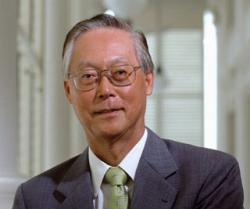Search the Community
Showing results for tags 'Citizens'.
-
https://asia.nikkei.com/static/vdata/infographics/china-spends-more-on-controlling-its-1-dot-4bn-people-than-on-defense/ China spends more on controlling its 1.4bn people than on defense Silencing dissent also nips innovation in the bud Aug. 29, 2022 It emerged in the central Chinese province of Henan in June that local authorities had abused an anti-COVID app to contain the movements of more than 1,300 people. Yang, who lives in Shandong Province, is one of them. On the morning of June 13, Yang arrived on a night train at his destination, Zhengzhou, the capital of Henan. As the train approached the station, he could not believe his eyes as his "health code" smartphone app turned red. In China, authorities track the location of citizens. If they are suspected of having come into contact with someone who has tested positive for COVID-19, their health code apps turn red and they face strict restrictions on their movements. Yang had no recollection of getting close to any infected person. But upon arrival at the station, he got another surprise: Officials told him he must leave Henan, and they took him away. Yang was visiting Henan to withdraw 230,000 yuan ($34,000) from a local bank. In Henan, multiple banks had refused to allow withdrawals since April, sparking a flood of protests by depositors. Local authorities feared that this would be viewed by the central government as a failure if the demonstrations spread. They rushed to cover up the inconvenient truth under the guise of the fight against COVID-19. Demonstrators holds up signs during a protest over the freezing of deposits by some rural-based banks, outside a People's Bank of China building in Zhengzhou, Henan. © Reuters China's zero-COVID policy of containing the virus through strict social controls has sent shock waves around the world. As President Xi Jinping's government pursues its policy of tolerating no infections, local governments across the country are going too far in tightening their stranglehold on ordinary people. On April 14, a video of a scuffle between police and residents of a housing complex protesting against an eviction notice in Shanghai, which was under lockdown, went viral on social media in China. As the residents shouted to police to leave the housing complex, police officers wearing white protective suits moved in en masse to detain them. Screams could be heard. Shanghai was locked down from the end of March, with 25 million residents banned from going out. Some were even forcibly evicted from their homes. Live videos of citizens suffering from food shortages or police behaving violently were posted on social media one after another, leaving authorities scrambling to delete them. A Shanghai sidewalk lies blocked due to discarded cartons believed to have been used for food rations. The street has been impassable since mid-May. © Kyodo But China's leadership under Xi did not waver. In May, it pledged to firmly fight any words and actions that question or reject the country's COVID-control policy and began to further increase its control over the internet. Once a state starts to move strongly in a given direction, it cannot stop easily by itself. According to a U.S.-China joint study published in the journal Nature Medicine, if China eases its zero-COVID policy, it will suffer a devastating blow because the effectiveness of the widely used Chinese-made vaccines is low. The study specifically warned that if China eases the policy, the number of people who show symptoms could rise to 112 million, and 1.6 million people could die in half a year. The Xi government's prestige is at stake. It cannot modify its COVID policy because it cannot let itself depend on vaccines made in Western nations. After taking the helm of the Communist Party as its general secretary in 2012, Xi launched a "zero tolerance" anti-corruption campaign. The move to try to do things perfectly has now spread to everything. The public security bureau of the Shanghai municipal government boasts high achievements. According to the bureau, the arrest rates in 2021 were 96% for burglaries such as sneak thefts and 100% for pickpocketing on subway trains. The bureau installed street cameras in all residential areas and commercial buildings by 2021, expanding the coverage of its surveillance system. The number of robbery cases in 2020 stood at 72, down a whopping 98% from the peak recorded in 2000. It is becoming more likely that the number will decline to zero. Although China is getting close to the ideal of a crime-free society thanks to technology, the price it must pay is by no means small. China's "public safety" spending, which is used to maintain public order and control speech at home, reached $210 billion in 2020. The amount more than doubled in 10 years. China's national defense spending is growing rapidly and closing in on that of the United States. But China's public safety spending was as much as 7% higher than its national defense spending in 2020. That is not all. Pent-up frustration among the public is growing further as the crackdown begins to grow excessive. The village of Wukan in Guangdong Province, once known as "Democracy Village," is now teeming with surveillance cameras. In China, a slang word making fun of police, meaning literally "a falling young man," has trended on social media since late June. It all started when a woman in her 40s and her father got into an argument with a male police officer in Dandong, in northeastern China's Liaoning Province. The woman and her father were stopped by the police officer on their way to a hospital. The officer cited the color of her health code as the reason. An argument broke out between them, and the woman was detained for 10 days on suspicion of obstruction of justice. A mocking video of the police officer, who pretended to have fallen during the confrontation, has gone viral. Public distrust of authorities has deepened due to the zero-COVID policy, and the fruits of people's frustration are being spread on the internet one after another. A vigorous and technologically innovative society can be created only where various opinions are allowed to clash. The more China tries to contain all differing opinions and control everything, the more it will also grow apart from the rest of the world. When the public reaction to this finally comes, "Great China" will find itself diminished. Patriotic reign blowing up in Hong Kong Government squeezes public opinion polls In April, yet another person who has supported Hong Kong's democracy left the city. On a flight bound for the U.K., Chung Kim-wah, a former assistant professor at the Hong Kong Polytechnic University, said in a Facebook post, "In the current Hong Kong, there is no room for sincere words, only lies." Chung had been summoned by police three times in connection with the polling organization where he worked, the Hong Kong Public Opinion Research Institute. He wrote on Facebook, "Hong Kong may no longer be a place to live without intimidation." The HKPORI was inaugurated with a research department at the University of Hong Kong as its parent. It has conducted highly reliable surveys that many Hong Kong researchers refer to. But its surveys have also sometimes reflected public opinion that China finds inconvenient. Since the Hong Kong national security law came into effect in the summer of 2020, pro-democracy media outlets, labor unions and other organizations have been forced to disband one after another. The institute is now rumored to be the next target. The Hong Kong newspaper Apple Daily, once a vocal critic of the Chinese Communist Party, has been forced to shut down. © Reuters The HKPORI conducted a survey ahead of the 2021 election for the Legislative Council, Hong Kong's lawmaking body. The survey asked Hong Kong people a multiple-choice question on how they would vote in the election. But the choice of "casting a blank vote" was criticized as "manipulating public opinion and destroying the electoral system." The institute's surveys about the zero-COVID policy and Russia's invasion of Ukraine were also seen as problems. Chinese government-affiliated media concluded that those surveys "lack a scientific basis" and that the institute "is suspected to be colluding with foreign forces." The environment surrounding opinion polls is becoming harsh. According to Tetsuro Kobayashi, an associate professor at City University of Hong Kong, some pollees do not answer political questions honestly, while some researchers refrain from asking sensitive questions. "Basic information such as the support rate for pro-democracy forces has become difficult to see, leading to [Hong Kong's] civil society shrinking," Kobayashi said. When lashing out at the institute, pro-China forces in Hong Kong frequently cite surveys by other organizations such as the Bauhinia Institute and OrangeNews. These surveys show completely different results from the HKPORI's surveys and Hong Kong citizens' actual feelings. For example, a survey by the HKPORI showed that only 32% of people in Hong Kong supported the zero-COVID policy, while as many as 57% were in favor of living with the virus. But a Bauhinia Institute survey said that 68% of people in Hong Kong supported the zero-COVID policy, while only 24% were in favor of living with the virus. It also said that as many as 76% replied that the national security law would not affect freedoms and rights in Hong Kong. Details on the Bauhinia Institute, which was established in 2016 by pro-China forces, are shrouded in mystery. An expert familiar with opinion polls said: "It seems to be conducting surveys using social networking sites popular with those born in China, such as WeChat. As sampling is unbalanced, decent researchers are not taking them seriously." Nikkei asked the Bauhinia Institute about its survey methods and relations with China. It did not answer directly, commenting only that it "serves Hong Kong and the state, unites patriots and supports the implementation of a better one country, two systems [formula] in Hong Kong. On July 1, Chinese President Xi Jinping visited Hong Kong for the first time in five years and implored "patriots governing Hong Kong" to be principled. © Reuters Xi recently made a trip to Hong Kong for the first time in five years, timed to coincide with the 25th anniversary on July 1 of the former British colony's return to Chinese rule. In a speech, Xi called for the thorough implementation of the principle of "patriots governing Hong Kong." He regards opinions differing from those of the Chinese leadership as impediments to policy implementation and shows no signs of a letup in the exclusion of pro-democracy forces. A government-affiliated Hong Kong newspaper published the results of a survey showing that as a result of Xi's speech, 77% of local citizens had deepened their confidence in the "one country, two systems" formula. China's propaganda campaign is becoming increasingly fierce. Robert Chung, the HKPORI's president and chief executive officer, pointed out that the question now is how to assess the direction of Hong Kong's society under the banner of science and democracy. Opinion polls are facing a new challenge, he added. If an authoritarian government continues to crack down on opposition forces, only voices supporting it come to be heard, and when the people finally vent their pent-up frustrations, it happens suddenly. This phenomenon is widely known. Hong Kong's "patriotic governance" seems to be incurring great risks as it attacks opinion polls, which are a "social thermometer," and closes its eyes to public opinion.
-
http://www.tremeritus.com/2014/03/05/ms-fu-20k-new-citizens-30k-prs-added-last-year/ Ms Fu: 20K new citizens, 30K PRs added last year March 5th, 2014 | Author: Editorial Ms Grace Fu In Parliament today (5 Mar), Minister in the Prime Minister’s Office Grace Fu said that the government has embarked on a new “strategic direction” in its population policies to bring about a slower and more sustainable pace of population growth, as committed to in the Population White Paper. She said, “Our goal is that Singapore continues to be an endearing home and a good place for Singaporeans to live, work and play.” Ms Fu also told the House that Singapore’s population grew by “just” 1.6% in 2013 last year, the slowest in 10 years and almost half the average rate of 3.1% from 2004 to 2012. 31,000 Singaporean babies were born last year resulting in a fertility rate of 1.19. The number of babies born is fewer than in 2012 but more than in 2011. Ms Fu also revealed that growth in the foreign workforce in the non-construction sector was halved from 7.1% to 3.5% last year in line with the government’s policy of tightening foreign manpower. This came about after several thousands of Singaporeans staged the biggest protest since Singapore’s independence, at Hong Lim Park on 16 Feb last year. It was staged against the 6.9 million Population White Paper passed by the PAP-dominated Parliament. Singaporeans were fed-up with the government’s “open door” policy which allowed too many foreigners to stay and work in Singapore, competing for resources with Singaporeans. Through births and immigration, Singapore citizen population grew by 0.9% to 3.31 million. Some 20,000 foreigners were also granted Singapore citizenship last year. “These (new citizens) were assessed to be to be able to contribute and integrate well into our society,” Ms Fu said. In addition, about 30,000 PR status were granted to foreigners last year to “mitigate the shrinking and ageing of our citizen population”, she added. Hoping to see more Singaporeans giving births, she urged aspiring parents to make time for things that matter, and not wait for the “perfect timing”. She said, “We, as family members, friends, employers and the community, will be there to encourage and support you every step of the way as you embark on this challenging but immensely fulfilling marriage and parenthood journey.”
- 294 replies
-
- 1
-

-
- new citizens
- citizens
-
(and 3 more)
Tagged with:
-
http://www.allsingaporestuff.com/article/3269800-singapore-citizens-think-lee-hsien-loong-good-prime-minister 3,269,800 SINGAPORE CITIZENS THINK LEE HSIEN LOONG IS A GOOD PRIME MINISTER by Wan Dan Liao, Straight Times In the usual bid to raise public awareness that PAP is a lousy political party with a lousy Prime Minister in-charge, opposition party members and their supporters have booked Hong Lim Park Speaker Corner for an event yesterday (5 July). The event questioned whether Prime Minister Lee Hsien Loong is the right person to lead Singapore and whether he should resign had attracted a respectable crowd of 200 in the backdrop of the recent public uproar against the government's unfettered use of citizens' CPF monies. Among the speakers were alien spotter Mr Goh Meng Seng, former Secretary General of the National Solidarity Party who believes AVA had let down Singaporeans by allowing food imports from Fukushima, Japan where radiation contamination is still believed to be in that area. Another speaker, Mr Tan Kin Lian, former President-hopeful and former NTUC Income CEO pointed out the obvious: Cost of living in Singapore is too damn high. Memorized by the theatrics and comedy, the crowd was visibly upset when one of the speakers Mr Mohammed Bashir, who has insensitively and seriously pointed out "there was no viable opposition in Singapore". He was boo-ed and heckled off the stage. One of the bystanders, Cao Ji Bai, holding back his tears, said, "Look! What rights do these speakers have to ask Lee Hsien Loong to abdicate? Don't these people understand the Lee Dynasty has existed for the past 50 years and they will continue to reign for at least another 50 years?". Mr Cao is holding on to a copy of Lee Kuan Yew's memoirs - The Singapore Story. "I carry this book with me to remind me of the sacrifices that the Supreme Leader has made for our motherland." The Singapore 2011 census counted 3,270,000 Singapore Citizens. With only a turn up of 200 at the Hong Lim Park yesterday, that is an indicator of the overwhelming support that Lee Hsien Loong has because 3,269,800 others did not turn up. Osman Sulaiman, the organiser of the event and a member of National Solidarity Party said the turn up could be better. "You all never help me promote the event lah. So many social political websites in Singapore but they also also never help me promote this event. You see lah. What solidarity? Sian. " - See more at: http://www.allsingaporestuff.com/article/3269800-singapore-citizens-think-lee-hsien-loong-good-prime-minister#sthash.Ajr53FNJ.dpuf
- 46 replies
-
- funny
- lee hsien loong
-
(and 3 more)
Tagged with:
-
Mr Han, I salute you for having the guts to speak out for citizens!!! Steady!!! Respect!!! http://forums.condosingapore.com/showthread.php?t=15547
-
PM Lee urges new citizens to make more effort to integrate Published on Jul 7, 2012 Shared values and goals, loyalty to country, and emotional attachment to places, are what give meaning to being a citizen, said Prime Minister Lee Hsien Loong. -- ST PHOTO: LIM SIN THAI By Robin Chan Shared values and goals, loyalty to country, and emotional attachment to places, are what give meaning to being a citizen, said Prime Minister Lee Hsien Loong. These aspects are much more important than just a change of legal status, he said, as he urged the new Singapore citizens to make greater effort to integrate into society. 'Much more important are the intangible factors, the heart part, that make citizenship meaningful,' Mr Lee said at a citizenship ceremony at Teck Ghee Community Centre on Saturday. He particularly urged new citizens who had recently moved to Singapore to put in more effort and adapt to Singapore. 'Do not just mix amongst yourselves, or with recent immigrants. Make friends with Singaporeans - your neighbours, colleagues, and with your children's schoolmates, and pick up Singaporean customs, lifestyles, norms and social rules,' he said to the 200 new citizens. Mr Lee noted that there are real differences in customs, habits and attitudes even among people who are ethnically similar, and that behaviour that is normal back in the home country, 'may not be considered socially acceptable in Singapore'. 'Know about them and try to bridge them,' he said. He encouraged them to adapt to Singapore norms, as part of their Singapore identity, and the best way to do so is by joining in community life such as by volunteering in school, or in self-help groups. He said: 'Becoming a citizen is a big step, but it is one step along the journey. I hope that now you have become a citizen, you will integrate more into society.'
-
http://news.xin.msn.com/en/singapore/artic...umentid=5938017 Teo Chee Hean nothing much to say...
-
from this thread http://www.mycarforum.com/index.php?showtopic=2667668 many have commented that PRs have 0 loyalty for singapore despite going thru NS and attaining citizenship i recall long ago i once read that LKY once said that he doesn't trust giving arms to non-chinese races in NS; not sure if its true so does he think its safe to pass arms to these new citizens? are these new citizens allowed to carry arms and go to war for singapore?
-
That's d way Mr PM. Sincerely hope u can accomplish that in 5 years. NEWS May 9, 2011 Government's priority is to improve citizens' lives: PM GIVEN the external international environment, Prime Minister Lee Hsien Loong said that the overriding priority for his government is to 'improve the life for our citizens.' Mr Lee was speaking at the 30th anniversary conference of the Government of Singapore Investment Corporation (GIC) at the Shangri-La Hotel on Monday. To achieve this, Mr Lee said Singapore must first grow the economy by staying plugged into the world by attracting investments and talent, encourage local enterprises to diversify, expand and move abroad, among other things. Mr Lee added that it is also the government's objective 'to raise income across the board', including the 'the middle income households and those at the lower end' by upgrading productivity through re-training and education of workers, and restructuring Singapore's industries. Other ways to grow the Singapore economy include buffering it against volatility by accumulating adequate reserves and maintaining political support for policies which benefit Singaporeans. Mr Lee acknowledged in his speech that it is not easy for Singaporeans to cope with rapid changes, even when the overall standards of living are rising and that his 'newly elected PAP government has its work cut out for it.'
- 89 replies
-
- Government
- priority
-
(and 3 more)
Tagged with:
-
Isn't it clear enough still have say it over & over again? We want ACTION done, not emphasing the same old same old motherhood statements again & again PLEASE??!! As for his own GRC's 40% of voters going against him, if he is still puzzled about the reasons, I feel very sorry to SDP's A-Team that lost to him. From CNA: http://www.channelnewsasia.com/stories/sin...1127734/1/.html Govt needs to improve communication with citizens: Dr Balakrishnan By Satish Cheney | Posted: 09 May 2011 1938 hrs
-
I feel a closeness to my Malay and Indian fellow citizens during this election that was not apparent before. A strange feeling cos we are supposed to be one country and the GRC was set up to attain closer integration and goodwill amongst the races. I guess this feeling arose from the sub conscious that we are one people after all. Perhaps it is also the primal feeling that we need to band together as one against the deluge of foreigners that have flooded in and caused many to feel like strangers in their own land. I have to thank the incumbent government for letting me feel what it means to be Singaporean, as one people, one nation. I am pretty sure they did not mean for it to happen this way though. With pride. A brave lion I will be.
-
Well, that seems to be the latest definition. Even the reporter also think so apparently. You can watch the video and verify from the speech by the PM from 02:255 to 02:59: http://www.straitstimes.com/GeneralElectio...ory_659474.html Go to the Razor video and take note that at 02:55, he mentioned that 2/3 of the managerial & professional positions goes to SINGAPOREANS. Unless the word SINGAPOREAN nowadays in the RP context includes both citizens & SIngapore residents, I have nothing to say. Then again see how his speech on this is mentioned in the same web page(highlighted in blue with sized 7 font for 02:55 portion) : Foreign workers help create good jobs for S'poreans: PM By Cassandra Chew and Chua Hian Hou In his speech, Mr Lee noted that six in 10 of the employees are 'Singaporeans and permanent residents'. Singapore residents also take up two-thirds of the managerial and professional positions, he added. -- ST PHOTO: CHEW SENG KIM FAR FROM being disadvantaged, Singaporeans have benefitted from good jobs created by the Government's policy of allowing in a 'controlled' number of foreign workers, Prime Minister Lee Hsien Loong said on Thursday. The policy has also attracted foreign investments to Singapore, said Mr Lee, speaking at the official opening of IMFlash's US$3 billion high tech electronics plant, one of the biggest electronics investments here. The Woodlands plant, a joint-venture between technology giants Intel and Micron, currently employs 1,200 staff. IMFlash's managing director Chen Kok Sing said the plant, the only wafer fab in Singapore to produce the memory chips used in many popular electronic items like smartphones and tablet computers, will have 1,500 staff by next year. In his speech, Mr Lee noted that six in 10 of the employees are 'Singaporeans and permanent residents'. Singapore residents also take up two-thirds of the managerial and professional positions, he added. For every one foreign worker, we have created 1.5 local jobs in this project,' he said. 'Without the foreign workers, we would not have attracted this US$3 billion investment, and Intel and Micron would have built its wafer fab elsewhere. But by allowing in a controlled number of foreign workers, far from disadvantaging Singaporean workers, we have created more good jobs for Singaporeans,' said Mr Lee. The Government's foreign worker policy could emerge as a hot-button issue this election as some believe that it has hurt residents' job prospects and depressed wages. Read the full report in Friday's edition of The Straits Times. **** Then again, as pointed by another bro, I am wrong so I should really brush up on my Engrish...
- 4 replies
-
- SINGAPOREANS
- MEANS
-
(and 2 more)
Tagged with:
-
Hi all I saw the other thread on HDB subsidy, are new citizens subsized the same amt as local born? I'm asking this as I visited my friend on the 33rd floor @ Pinnacle Duxton and in a level of 6units, one is new PRC citizens, the other is from India.. And I saw on TV this AT sibeh haolian speaking in AT accent that he got a single digit @ Dawson BTO.. I'm sure HDB also give new citizen priority since they have more urgent need of a home than most of us???!!
- 21 replies
-
- Citizens
- Guaranteed
-
(and 1 more)
Tagged with:
-
http://www.channelnewsasia.com/stories/sin...1079916/1/.html Converting 10% of PRs to citizens "not a target": SM Goh's press secretary By Joanne Chan | Posted: 08 September 2010 1912 hrs SINGAPORE: The press secretary to Senior Minister Goh Chok Tong has said that the figure mentioned by Mr Goh about Permanent Residents who will be asked to take up citizenship, was only for "illustrative purposes". Mr Ho Tong Yen was replying to queries following Mr Goh's comments at a dialogue session at Marine Parade on Monday. Mr Goh was reported as saying that the government might approach ten percent of PRs in Singapore to take up citizenship and if they did not do so, their PR status would not be renewed. Mr Ho said that the Senior Minister was making a general observation to illustrate the point that the government would be managing the inflow of PRs and that some would be encouraged to become citizens. The figure of ten percent which Mr Goh gave was "not a target", and it is also not the case that all PRs who turn down the offer of Singapore citizenship would not have their PR status renewed, said Mr Ho. The government will continue to review and refine its policies to ensure that those who have PR status are an asset to Singapore's society and that those who are given citizenship are, in addition, assessed to be committed in their allegiance to Singapore, added Mr Ho. - CNA/ir
- 100 replies
-
- Converting
- citizens
-
(and 1 more)
Tagged with:
-
I heard in the MRT today two old uncles talking. They said their China mei mei was complaining to them last night that Singapore education is so easy for their china born kids. The Chinese language is so easy for their children to pass the PSLE, its like this subject is a Free-pass given to their kids, and all they need to study is the maths and science and english(one less subject to worry for the exams). And the china mei mei are NOT happy that the gov is going to cut down the % weighting as it will level the playing field for the 'lousy and lazy' Singaporeans who does not like to study and perform badly in chinese. They say this gov is trying to make things easy for the citizens and not for the PR kids! May 5, 2010 Chinese teachers' union concerned Officials meet Education Minister over review of mother tongue weighting By Clarissa Oon, Senior Political Correspondent OFFICIALS of the Singapore Chinese Teachers' Union (SCTU) have met Education Minister Ng Eng Hen to express their concerns over a possible cut in the weighting given to mother tongue languages in the Primary School Leaving Examination (PSLE). They had a 11/2-hour dialogue on the issue, which has stirred up strong, polarising reactions in recent days. The union, which represents the 1,600 Chinese teachers in Singapore, yesterday released a statement about the meeting on Monday evening, which was also attended by Mrs Josephine Teo, assistant secretary-general of the National Trades Union Congress. Currently, mother tongue has a weighting of 25 per cent, similar to that for English, mathematics and science, the other three subjects in the PSLE. The union called in its statement for this weighting to be preserved 'so that it is more in line with the principle of bilingualism and further strengthens the competitive advantage of Singapore in developing bilingual talents'. At the dialogue, Chinese teachers shared their concerns with Dr Ng and gave their feedback on how the teaching of the Chinese language could be improved, particularly for weaker pupils. Dr Ng assured them that the Government had no intention of reducing the importance of mother tongue languages in the education system. He also shared his ministry's future directions for the teaching of the subject. He and Prime Minister Lee Hsien Loong are expected to meet the press next week to address concerns and outline the Government's thinking on the issue. Public debate has been heated, particularly among Chinese Singaporeans, after Dr Ng gave a media interview two weeks ago questioning the educational soundness of the mother tongue counting for so much at primary school level. Those who support reducing the mother tongue weighting say that the current system penalises pupils who excel in all subjects except mother tongue. These pupils are mostly from English-speaking families. The opposing camp cuts across a broader spectrum. Elderly Chinese community leaders and young bilingual professionals alike are against a further dilution of Chinese language standards. There are also English-educated parents who feel that a reduced weighting for Chinese does not make sense in an age when more people worldwide are wanting to learn the language. Chinese-language teachers fear that a cut in the mother tongue weighting could lead to reduced Chinese lessons and redundancies in their profession. The SCTU statement said any downgrading of mother tongue weighting in the PSLE 'would directly and adversely affect the resource allocation by the schools and parents and hence the attitudes of pupils towards the subject'. While agreeing with the minister that mother tongue examinations and assessments should be reviewed, it said the review should 'strengthen the linkage between assessments and curriculum so as to positively motivate pupils to learn the language'. The union stressed that Chinese teachers care about pupils who are weaker in the language, and agreed to measures to help this group. 'But all this should be done on the premise of preserving the importance of mother tongue,' it added. Speaking to The Straits Times yesterday, Mrs Teo said the dialogue had gone well and she was impressed by how the union had 'brought up its concerns in a rational and professional manner'. SCTU president Lim Chin Nam added that it had been a very encouraging session for the Chinese teachers. 'The atmosphere was very sincere and open and everyone spoke their minds,' he told The Straits Times. [email protected]
-
http://www.channelnewsasia.com/stories/sin...1025957/1/.html Greater chance for S'pore citizens to secure place at popular primary schools By Hoe Yeen Nie, Channel NewsAsia | Posted: 20 December 2009 1413 hrs SINGAPORE: From next year, Singapore citizens will have a greater chance of getting their child into the primary school of their choice. The Ministry of Education (MOE) is tweaking the Primary One registration exercise to allow pink identity card holders an additional ballot during the balloting exercise for popular schools, where applications outstrip vacancies. Currently, permanent residents (PRs) and citizens both get one ballot slip each. Foreigners will not be affected by the change, as they may only apply for a school under Phase 3 of the registration exercise, after Singaporeans and PRs have secured places. The MOE said on Sunday that giving citizens two chances at the ballot "will provide for diversity in our schools, while simultaneously according Singapore citizens an additional privilege." It added that the move is in line with the government's intention to "over time, sharpen the differentiation between Singapore citizens, PRs and foreigners to reflect the responsibilities and privileges of citizenship" as highlighted by Prime Minister Lee Hsien Loong at a speech in September. Announcing the change at a residents dialogue, Education Minister Ng Eng Hen however said: "I don't want this to come across as against PRs. We still want PRs in our schools, and it doesn't mean that for all our policies, we're always going to be able to say that Singaporeans get two chances compared to the one chance for the PR. That's not the general message." PRs make up about 8 per cent of students in schools, while foreigners account for about 4 per cent. These relate to the population in primary and secondary schools, as well as JCs and centralised institute. While the proportion has been consistent over the past few years, the growing presence of new immigrants has nonetheless raised some concerns among Singaporeans. Dr Ng said: "I know that over the years, Singaporeans have said, 'look, we already have to ballot to get our children into the schools, and we live near. Even with the priority schemes, we still find it hard to get our children into the schools'. What about the issue of Permanent Residents and foreign students?" But he noted the government has to strike a "delicate balance" between the two. "We do want, also, PRs to have some privilege of entering our schools, because PRs become citizens as well. And if you don't allow their children to enter the good schools, they might not want to take up PR-ship or become citizens later on," said Dr Ng. Speaking at a separate event, Minister in the Prime Minister's Office Lim Hwee Hua hoped that the move "sends the message that citizens will always be the primary focus of government policies". On how the government would explain this policy to non-citizens, she said: "I think the explanation will really revolve around the relative importance of citizens to any country versus permanent residents, and versus non-citizens and non-residents. "And that the distinction is seen not just in this case, but also in the way we differentiate between healthcare costs and so on. That necessarily would have to be the way we run our policies." While the change was welcomed by most, parents are still realistic. Jasmine Liang, a parent, said: "In the end, it's still balloting. So in the end, it's still by luck, whether (your child) really can get in (or not)." Dr Ng added that having PRs and international students in schools has its advantages, as they add diversity to the schools and can expose young Singaporeans to competition at an early age. Some parents, like Candy Yoo, agreed. "Like my girl, she likes to make friends with people from China. They like to read books that are very difficult, but they're willing to try. So, my girl sees that 'why they can do it, I can't? I have to learn from them'." The government has in recent years introduced big changes to the education landscape. This invariably means that the costs of schooling will go up. So who will foot the bill? The minister said that while non-citizens will still get subsidies, they will have to foot the bulk of the costs. Hence, non-citizens will see their school fees go up. To minimise the impact on existing students, the increase in monthly fees, which include both school and miscellaneous fees, will be spread over two years from 2011. PRs currently pay between S$14.50 and S$29 a month, depending on the level of education. By 2012, these will go up by nearly four times to range from S$51 to S$102 a month. Foreigners, who now pay between S$131 and S$372 a month, will soon pay double. They will be charged between S$246 and S$772 a month. Students from non-ASEAN countries, who now pay more than ASEAN students, will also see a bigger increase. Citizens will see no change, for now. Monthly fees for Singapore citizens will remain at the current rate of between S$11 and S$28. But some Singaporeans felt the hike for non-citizens was too much. Denis Chow, a parent, said: "If you talk about another 20, 50 percent more, or even double, I think it's still reasonable. But to quadruple, it's a bit hard to stomach. "To me, if they actually made the choice to come to Singapore to study and stay in Singapore, leaving their own countries and families behind, I think as a basic right, so to speak, we should give them the same kind of fees as Singapore citizens." But MOE said that even after the hikes, fees are still competitive compared to international and private schools. - CNA/yb/ir
-
Asian Graduate Student Fellowships 2010 The Asia Research Institute of NUS invites applications from citizens of Asian countries enrolled for a fulltime advanced degree at a university in an Asian country (except Singapore) for consideration for the award of Asian Graduate Student Fellowships. These fellowships are offered to current graduate students doing their Master
- 1 reply
-
- Scholarship
- citizens
-
(and 3 more)
Tagged with:
-
Dearest ICE Senior Citizens, Through observation, i dun see your posting anymore? A quick scan of previous threads, i have noticed many good articles as well as good ICE discussion from you guys but now......somehow you guys just vanished? Is it you find the ICE standards drop or you guys have achieve nirvana? Hope to hear from you.


.png)










